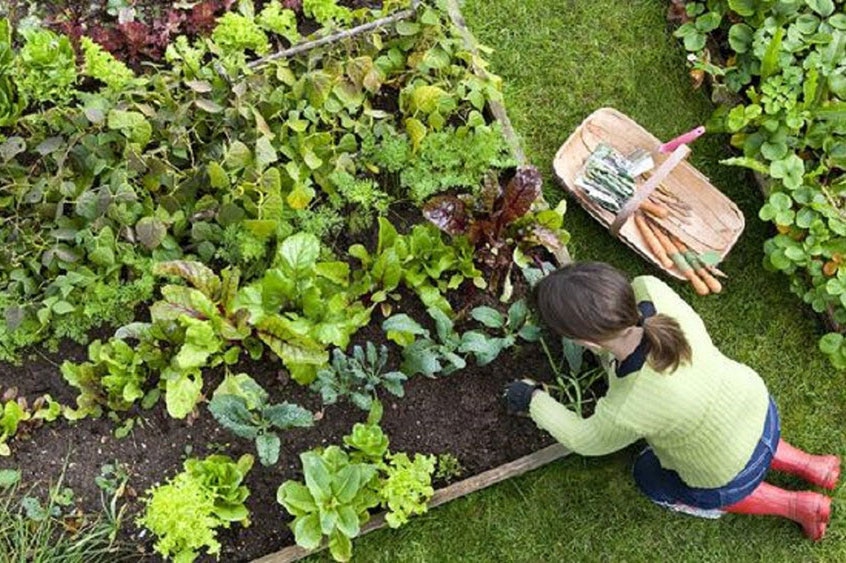Are you ready to embark on a journey of homegrown goodness? Starting your own vegetable garden is a rewarding endeavor that not only fills your plate with nutritious delights but also connects you to the rhythms of nature. Whether you’re a seasoned horticulturalist or a beginner with a green thumb, cultivating a vegetable garden offers a fulfilling experience that nurtures both body and soul.

The Joy of Growing Your Own Food
There’s something inherently satisfying about nurturing a tiny seed and watching it transform into a bountiful harvest. A vegetable garden grants you the power to choose the freshest, most flavorful produce right from your backyard. Imagine savoring the taste of sun-ripened tomatoes, crisp cucumbers, and vibrant bell peppers you grew with your own hands.
Selecting the Right Spot
Before you dive into the world of vegetable gardening, consider the location. Choose a sunny spot in your yard that receives at least 6-8 hours of direct sunlight daily. Sunlight is crucial for photosynthesis, the process that allows plants to convert light energy into food.
Soil Preparation
The foundation of a thriving vegetable garden lies in the soil. Prepare the soil by removing weeds, rocks, and debris. Enrich it with compost or well-rotted manure to provide essential nutrients for your plants. Healthy soil promotes robust root growth and better yields.
Picking Your Produce
Deciding what to plant is a delightful decision. Research which vegetables thrive in your region and climate. Consider your family’s preferences and the available space. Popular choices include tomatoes, lettuce, carrots, beans, and zucchini. Opt for a mix of veggies to ensure a diverse and nutritious harvest.
Planting Techniques
Once you’ve chosen your vegetables, it’s time to get your hands dirty. Follow planting guidelines based on the specific needs of each plant. Some vegetables, like tomatoes and peppers, may require staking or support to grow upright. Others, such as sprawling pumpkins, need ample space to spread.
Watering Wisdom
Consistent and adequate watering is crucial for a successful vegetable garden. Provide your plants with deep, even watering to encourage strong root development. Use a soaker hose or drip irrigation system to prevent waterlogging and promote efficient water use.
Nurturing and Care
As your garden takes root, don’t underestimate the power of vigilance. Regularly inspect your plants for signs of pests or diseases. Practice organic pest control methods to protect your garden without harming the environment. Additionally, consider mulching around your plants to conserve moisture, suppress weeds, and regulate soil temperature.
Reaping the Rewards
As the days turn into weeks and weeks into months, your diligent efforts will be rewarded. Witness the transformation of tiny seeds into flourishing plants laden with ripe, homegrown vegetable garden. Harvest your produce when it’s at its peak of freshness and enjoy the incomparable taste of fruits of your labor.
A Greener Lifestyle
Starting your own vegetable garden is not just about growing food; it’s a commitment to a greener lifestyle. By reducing your reliance on store-bought produce, you’re contributing to sustainability and lowering your carbon footprint. Plus, gardening fosters a deeper connection to the Earth and the cycles of life.
Conclusion
As you take the first steps in starting your own vegetable garden, remember that every seed you plant is a testament to your dedication and love for nature. Embrace the journey with open arms, and soon enough, you’ll be savoring the satisfaction of nurturing a thriving garden that sustains your body, mind, and soul. Happy gardening!








